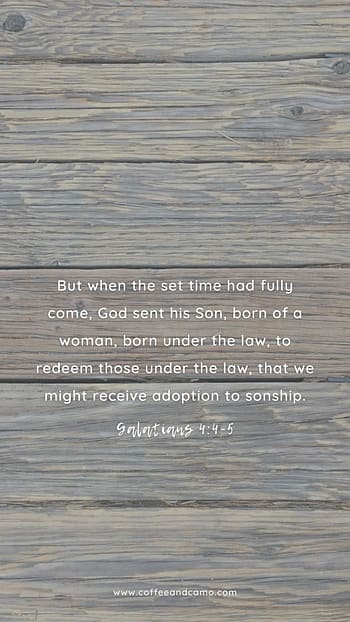Want Advent emails delivered straight to your inbox? Sign up here!
Readings: Matthew 1:1-17 + Luke 3:21-38 + Galatians 4:1-7
It’s the spring of 2015. My not-yet-husband and I have met for our second date, choosing a city halfway between the two of us.
As we’re driving around an unfamiliar city, we explore a subdivision under construction. Our conversation turns to the future and family. We talk about how many kids we want, and I share with him that I desire to adopt.
Growing up, I read a lot. I was intrigued by different cultures and the stories of people who lived a life so utterly different from mine.
These stories opened my eyes to a need in the world—we all need family and to be known by others. Since I was a tween, I’ve wanted to adopt.
My heart longs for a diverse family, a chance to welcome people from all over.
As a part of the adoptive family of God, Jesus does this with us.
In both Matthew and Luke, we can trace our new family lineage. We can see the history of our adoptive family.
I confess – I’m guilty of skipping over the genealogies in the Bible. The names are hard to pronounce. A long line of descendants causes my eyes to cross and glaze over.
Bor-ing.
But this lineage of Jesus is a lineage we can also claim. As adopted sons and daughters, we have a place in this family history.
As you read today’s scriptures, you’ll notice pretty quickly that Matthew and Luke have different names listed. Scholars have differing ideas as to why this is, but I’ll share one (simplified) opinion that, to me, makes the most sense.
As writers, Matthew and Luke have different audiences in mind.
Matthew is writing primarily to a Jewish audience, while Luke is reaching a broader, gentile audience.
With this in mind, it would make sense that Matthew’s writing places Jesus into the lineage of Abraham. Luke’s audience would benefit from seeing Jesus’s family line traced back to Adam and even God himself.
These varying viewpoints don’t mean one is less accurate than the other. From a literary perspective, all writers have agendas and unique points of view. Two writers can look at the same flower and describe it differently – it all depends on the audience they’re trying to reach and what the writer wants to convey.
One lineage isn’t necessarily better than or more correct than another. Family lines are extensive. Both can be true.
The critical thing to remember is our God cares for each of us as individuals. He knows us deeply, better than we can know ourselves because he created us. Each of these family lines shows all readers that they have a place in this story.
For some, Christmas is a lonely time of year. That’s especially true this year, as many families are being asked to stay apart.
But God sees us. He knows us. And he welcomes us into his family.
God knows each one of our stories this well. He knows our family trees; he can call us each by name. God is no stranger to the battles we fight, the inner workings of our minds, the thoughts we have.
Still, he has made space for us. We don’t have to wait to belong.
God has a purpose for each of us. There is a line in this lineage for us, too. We are written into this story.
God came to save us, bring us into the safety of his family, and his inheritance as King.
Journal Prompt: Reflect on what you know about your genealogy. Where do you come from? What do you know about your ancestors? How are you being written into the greater story of God?


